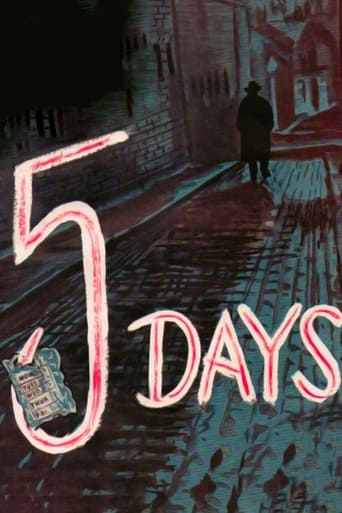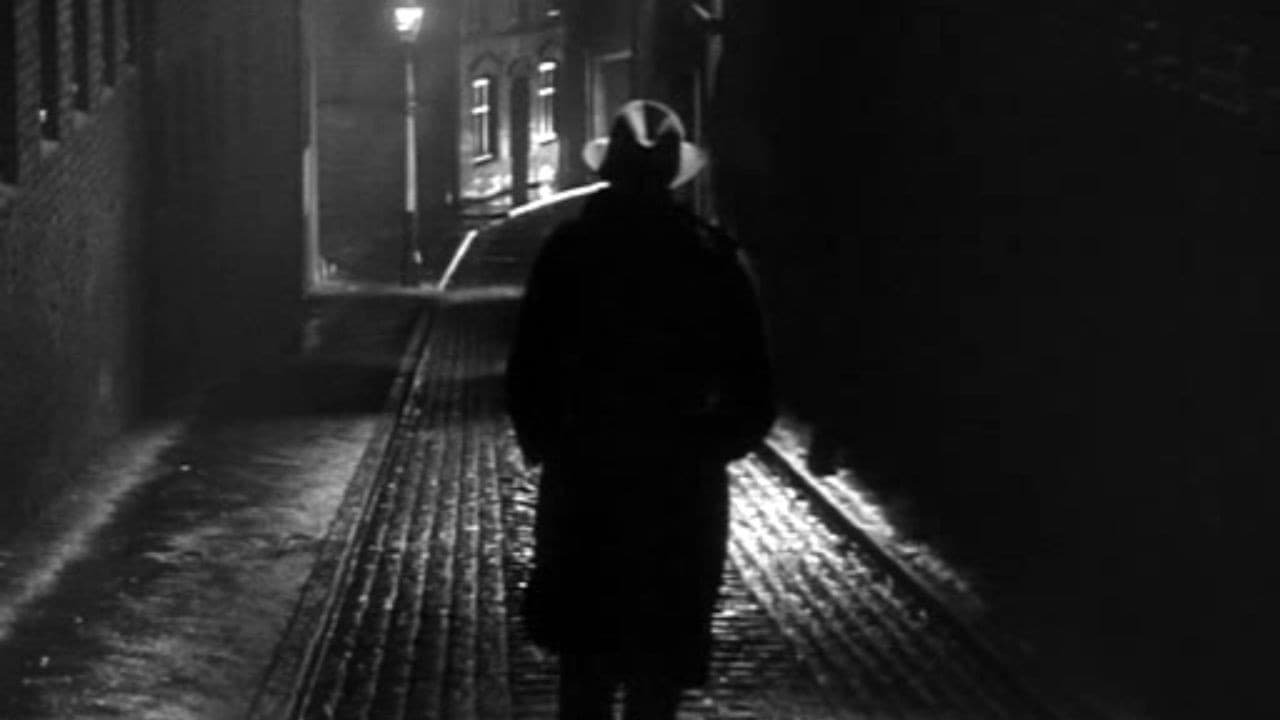blanche-2
Dane Clark was one of the actors who went to England and made these films for Hammer, Kit Parker Films, etc.Here he stars in "Paid to Kill," a 1954 film also starring Anthony Forwood, Paul Carpenter, and Cecile Chevreau.Clark plays a businessman out of options when an important deal falls through. Desiring security for his wife, whom he adores, he arranges for someone to kill him.We've seen this before, though it does contain a twist. However, it's pretty routine.Clark was a John Garfield wannabe who had a prolific, if not spectacular career in films and television for nearly five decades.Anthony Forwood, a tall, handsome Brit, was married to Glynis Johns before he became the manager and long-time companion of Dirk Bogarde. He actually made a few films in the '50s before working behind the scenes.I like these black and white British mystery/suspense films. Some are better than others, but they manage to be entertaining.
LeonLouisRicci
Hammer Studios was Yet to Find its Niche and Managed to Make B-Films of Different American Genres in Their Pre-Horror Boom. The Studio's Late Entries Into the Noir Cycle were Not Bad but Still a Day Late and a Dollar Short.Even the American Born Genre of Film-Noir was Showing Signs of "Evolving" or "Devolving" into More Palatable Pictures in that More Optimistic and Eisenhower Friendly "Crime Dramas" and All but Abandoned the Cynicism and Dark Undertones of the Best of the Noris.Here there are a Couple of Scenes that Remind of What those Dark Films Offered, Like a Nightmre Alley with a Killer on the Loose and a Claustrophobic Greenhouse Finale that Highlight. Dane Clark does a Fine Job as a Fate Gone Wrong Businessman and Shows Some Range. The Supporting Cast Not So Much as Most of the Characters are Shallow and Purely Pedestrian.Worth a Watch for Hammer Completest and B-Movie Crime Fans, but by 1954 Film-Noir was Turning into Something Different and This One was Caught on the Edge of the Transition and While Nothing Special, it is One More that Can Be Put on that List of Film-Noirs that have Many Entries that Simply Seem to Fit Arguably and Not Comfortably.
dougdoepke
Looks like budget-minded Lippert productions got more bang for their buck in England than in the US. This is a well-produced crime drama, with a tight script and some good touches. Nevill's (Clark) a not very likable business bigshot, (note that he treats his board of directors with uncalled for abruptness). Trouble is his latest big deal is failing, so, in desperation, he arranges his own death. That way his wife Andrea can collect insurance and be taken care of. His plan is to hire associate Paul to do the job. But surprise, the business deal suddenly goes through and Nevill's vindicated. Now he's got to stop Paul from carrying out his part. Nonetheless, it appears that Paul's gone away. Yet, surprise, somebody really is trying to kill Nevill. But if it's not Paul, who is it and why.Clark delivers an exemplary performance. Notice his subtle facial expressions to fit the mood. There're some good touches, like the suspenseful father in the park or the colorfully blustery Hyson, neither of which affects the plot but does add atmosphere. And catch that very last shot, suggesting that Nevill's obsession is not yet spent, despite the attempts to kill him, while poor Joan comes trailing after. It also suggests a sneaky subtext that might otherwise go unnoticed amid the murder plots. To me, the movie's much better than expected for a Lippert production. The movie's got mystery, suspense, and atmosphere, plus Clark's motivated turn. So catch it if you can.
kuciak
This is by no means a great film. It however still holds interest for the politics of the film. The producer, Libert had an agreement with Hammer film studios that he would provide known American actors in British films. Forced into this situation, came this interesting film. Like the Quatermass films with Brian Donlevy, we are shown two men, who are not identified as I remember as Americans, but we can tell are (though Paul Carpenter was born in Canada) One is at the top of the social ladder, and one more so at the bottom. They are supposedly friends, having that "American" bond. When Paul Carpenter arrives at Dane Clarks home, a party is going on. Though Clark is not their. People are elegantly dressed, but Paul comes very casual to say the least, which really sets him apart from the other people at the party, apparently all British. One of the guests at the party is one of the people who works at Clarkes company, being in the boardroom, who is earlier accused by a colleague of only having this job because of family connections. Clark on the other hand arrives at this party late, possibly from working late. While he is dressed in a tie, he does not go into the milieu of the party, but views his wife from an opening in a wall. As we can see, he is somewhat the chairman of a board, and believes that he has gotten into a business deal that will ruin his company, and his reputation. He has the intent of hiring Paul Carpenter, as Paul to kill him, so that his wife, who he loves deeply can collect the insurance. Later of course, Clarke's character will realize that the deal that he failed would fail, has gone through, and will make the company a fortune. The plot of this somewhat implausible story is now for Clark to save his own life. The interesting thing about the film are the relationships. While Clark loves his wife deeply, I somewhat suspected that she did not return this in kind, and of course this would be revealed in the end, and that she does not love Dane Clarks character, a man we can see somewhat had to fight his way to the top, but the Englishman played by Anthony Forwood, a man born into money. She blames Clark for marrying her for her wealth, and says she despises him.Here is Clarks character, an American head of a British Company, who is often separate from the rest of his people on the board, who is delusional that his British wife loves him, and believe that he has a British friend, who is actually trying to kill him. On the board he has a member who is antagonistic to him, and does not like the methods of which Dane Clarks character will try to get results, considering them underhanded and dangerous. While he is fat and old, while Clark is young and slim, he seems to take the case of defending British honor against Clark, which will culminate in a Turkish bathhouse scene, which has somewhat homosexual overtones, where the Englishman will express his dislike for Clark, to Clarks humiliation. Clarks relationship with his secretary however is totally different. She is devoted to him, so much so that when he yells at her, one almost feels a sado-masochistic relationship, that he could probably take somewhere and beat her, and she would feel it is showing her devotion to him. Mirroring this is a devotion from a barmaid to Paul Carpenters character, (a caricature of the Ugly American?)a misguided love, though not in the same vane as Clarks relationship with his secretary. Throughout the film, we are shown a disdain of some of the characters for Americana, and also from others a reverence. One writer here reviewing the film has suggested that with the demise of Clarke's scheming wife, that he will have free reign with his secretary. While she has stated her love for him while he tried to strangle the true love of his wife. It is interesting the last scene, when he carries his wife's dead body from the garden house to the home. He feels that is where her body belongs, and one still sees, though he should really feel disdain, a misguided love for this dead woman. The secretary who loves him, and has saved him from death, seems to follow him dejectedly into the house. Does the American Clark, really love his dead wife for what she represents, some idea of British wealth. It could be argued that he will really not fall in love with his secretary, as she is in the lower status of the British social order.


 AD
AD




